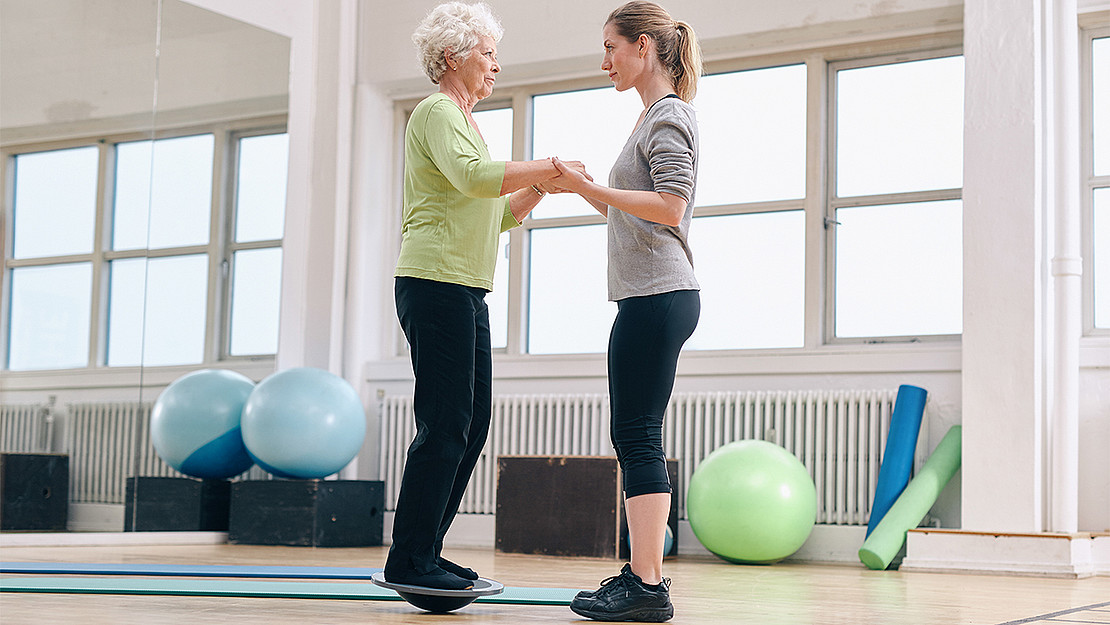This page contains automatically translated content.
Strong hip muscles prevent falls in the elderly
 Image: Jacob Lund.
Image: Jacob Lund."The strength of the hip stabilizers decreases more with age compared to the strength of the leg extensors," says Prof. Dr. Armin Kibele from the Department of Exercise Science at the University of Kassel. "This increases the likelihood of falls in this age group." Fallers are no longer as capable of catching themselves, he adds. While the strength of the hip stabilizers is about 44 percent lower in older women around 70 years old compared to young women around 25 years old, this difference is only 33 percent for the leg extensors.
"That's why older people in particular should train the stabilizing hip muscles intensively," says Kibele. The sports scientist also recommends a training method. "To strengthen the hip muscles, strength training should be performed on unstable surfaces." This includes, for example, so-called wobble boards. Such training also improves mental performance, he said. The Kassel study is an important step in developing sports programs to prevent falls, he said. "We are trying to understand the risk of falls and its causes in detail and have now found an influencing factor that has received little attention so far."
For the study, strength relationships between hip adductors, hip abductors and knee extensors were examined in 121 women of various ages. It appeared in the international online journal PLOS ONE.
The study is part of the TASK project. TASK stands for Transfer and Application Center Sport in Kassel and is a cooperation between the city and the University of Kassel that is unique in this form in Germany. The TASK project is about making findings from sports science usable for society and, conversely, investigating and accompanying issues relevant to society from a sports science perspective.
The PLOS ONE article can be found here: https://journals.plos.org/plosone/article/comments?id=10.1371/journal.pone.0213361
Contact:
Prof. Dr. Armin Kibele
University of Kassel
Institute for Sport and Sport Science
Tel.: +49 561 804-5397
E-Mai: akibele[at]uni-kassel[dot]de